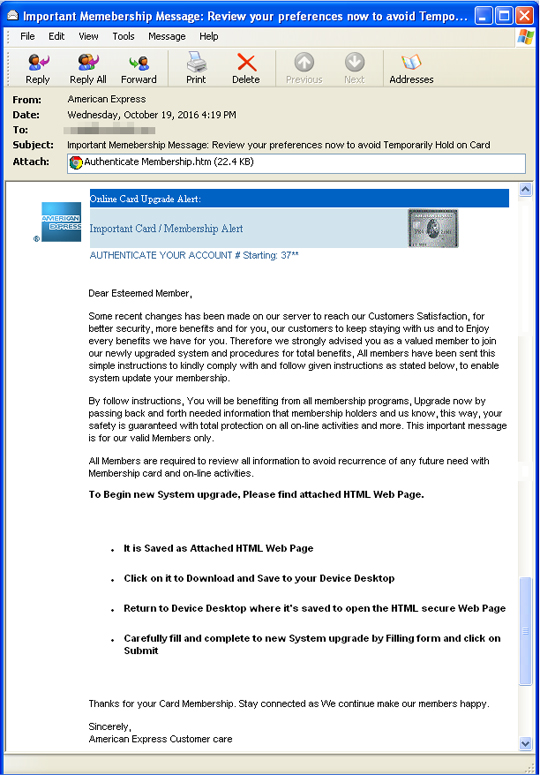HTML_PHISH.YTD
Mal/Phish-A (Sophos)
Windows


Threat Type: Trojan
Destructiveness: No
Encrypted: Yes
In the wild: Yes
OVERVIEW
This Trojan arrives as an attachment to email messages spammed by other malware/grayware or malicious users.
It steals certain information from the system and/or the user.
TECHNICAL DETAILS
Arrival Details
This Trojan arrives as an attachment to the following email messages spammed by other malware/grayware or malicious users:
Information Theft
This Trojan steals the following information:
- User ID
- Password
- 15-digit Card Account Number
- 4-digit Card ID Number
- 3-digit Card Security Code
- Card Expiry Date
- Billing Zip Code
- Social Security Number
- Date of Birth
- Mother's Maiden Name
- Mother's Birthday
- Security Pin
- Driver's License Number
- Email Address
- Email Password
Stolen Information
This Trojan sends the gathered information via HTTP POST to the following URL:
- http://{BLOCKED}oducties.nl/media/cms/images/s.php
NOTES:
Upon execution of the file, the user is presented with a fake American Express webpage asking for personal account information.
SOLUTION
Step 1
Before doing any scans, Windows XP, Windows Vista, and Windows 7 users must disable System Restore to allow full scanning of their computers.
Step 2
Close all opened browser windows
Step 3
Scan your computer with your Trend Micro product to delete files detected as HTML_PHISH.YTD. If the detected files have already been cleaned, deleted, or quarantined by your Trend Micro product, no further step is required. You may opt to simply delete the quarantined files. Please check this Knowledge Base page for more information.
Did this description help? Tell us how we did.



